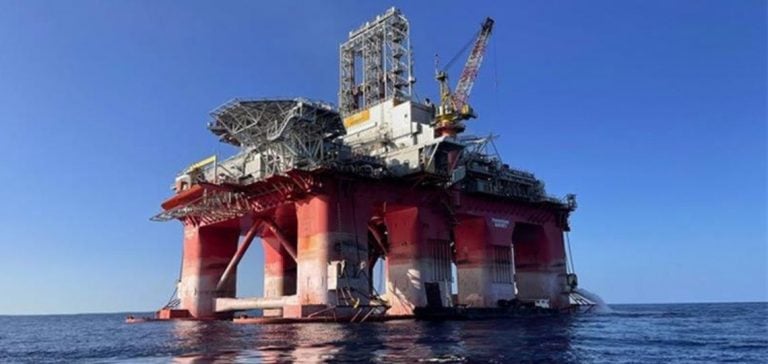L’Égypte vise à restaurer sa production de gaz naturel d’ici l’été 2025, avec pour objectif de stabiliser l’approvisionnement énergétique du pays. La production a connu une baisse significative, en grande partie à cause des arriérés financiers accumulés envers les entreprises opérant dans le secteur pétrolier et gazier.
Ces dettes, qui se sont accumulées en raison de la pénurie de devises étrangères, ont directement impacté l’exploitation des champs de gaz.
Selon des informations recueillies en mars 2024, le gouvernement aurait réservé 1,5 milliard de dollars pour régler ces créances.
La baisse de production a mis en difficulté le réseau électrique, principalement alimenté par le gaz naturel.
La demande intérieure, exacerbée par l’utilisation accrue de systèmes de climatisation en période estivale, a conduit à des coupures d’électricité régulières.
En réponse, des importations de gaz naturel ont été nécessaires pour compenser cette baisse.
Toutefois, ces mesures temporaires n’ont pas suffi à garantir un approvisionnement stable.
Stabilisation de l’approvisionnement électrique
Le Premier ministre Mostafa Madbouly a récemment déclaré que l’Égypte a alloué 2,5 milliards de dollars supplémentaires pour éviter le retour des coupures d’électricité dites de “load-shedding”.
Ces coupures, suspendues depuis juillet 2024, avaient été mises en place en raison de l’insuffisance de gaz domestique, aggravant la crise énergétique du pays.
Le gouvernement se montre résolu à éviter de nouvelles interruptions, alors que la pression sur le réseau électrique reste forte.
L’Égypte, malgré sa position de producteur régional de gaz, a été contrainte de recourir à des importations pour satisfaire la demande domestique.
Cette situation a révélé les limites du modèle énergétique actuel, basé principalement sur la production nationale de gaz.
La dépendance excessive à cette source d’énergie représente un défi de taille pour l’avenir, surtout dans un contexte mondial d’instabilité des marchés énergétiques.
Conséquences sur les entreprises opérant en Égypte
Les entreprises internationales qui opèrent dans le secteur gazier en Égypte ont été impactées par ces retards de paiement.
Certaines sociétés ont dû ajuster leurs investissements en raison de l’incertitude économique liée aux arriérés.
Les retards de règlement ont freiné l’exploitation optimale des champs gaziers et ont entraîné une réduction de la production, ce qui a exacerbé la crise énergétique nationale.
Toutefois, avec la promesse du gouvernement de régler ces dettes, les perspectives de relance du secteur énergétique se précisent.
Le rétablissement des paiements pourrait encourager un regain d’investissements étrangers, essentiel pour assurer une reprise rapide de la production gazière.
Les entreprises attendent désormais de voir si les mesures financières annoncées seront suivies d’effets concrets.
Un enjeu stratégique pour l’Égypte
Le secteur gazier est au cœur de la politique énergétique égyptienne.
Le pays dépend du gaz naturel pour plus de 60 % de sa production d’électricité, ce qui le rend particulièrement vulnérable à toute perturbation de la chaîne d’approvisionnement.
Pour le gouvernement, il est crucial de rétablir un équilibre entre production domestique et importations, afin d’assurer la sécurité énergétique à long terme.
En parallèle, l’Égypte cherche à renforcer ses capacités de production d’électricité à partir d’énergies renouvelables, bien que ces projets ne constituent pas encore une alternative crédible à court terme.
La modernisation des infrastructures énergétiques, ainsi que l’amélioration de l’efficacité énergétique, sont des axes prioritaires pour le gouvernement dans les années à venir.
Cependant, ces initiatives dépendent largement de la résolution des tensions financières actuelles.
Outlook for 2025 and beyond
The goal of restoring normal gas production by summer 2025 is part of a broader strategy to secure the country’s energy supply.
The plan to settle arrears and the commitment of $2.5 billion to avoid further cuts illustrate the government’s determination to restore confidence in the sector.
Foreign investors remain attentive to developments in the situation, as do regional partners who depend on Egyptian gas exports.
Energy stability remains a key concern, as tensions on international gas markets continue to influence the economic outlook.
Egypt will need to demonstrate its ability to attract new investment while consolidating its partnerships with existing oil and gas companies.
The allocation of financial resources to secure gas supplies and national energy needs will be crucial in the years to come.






















